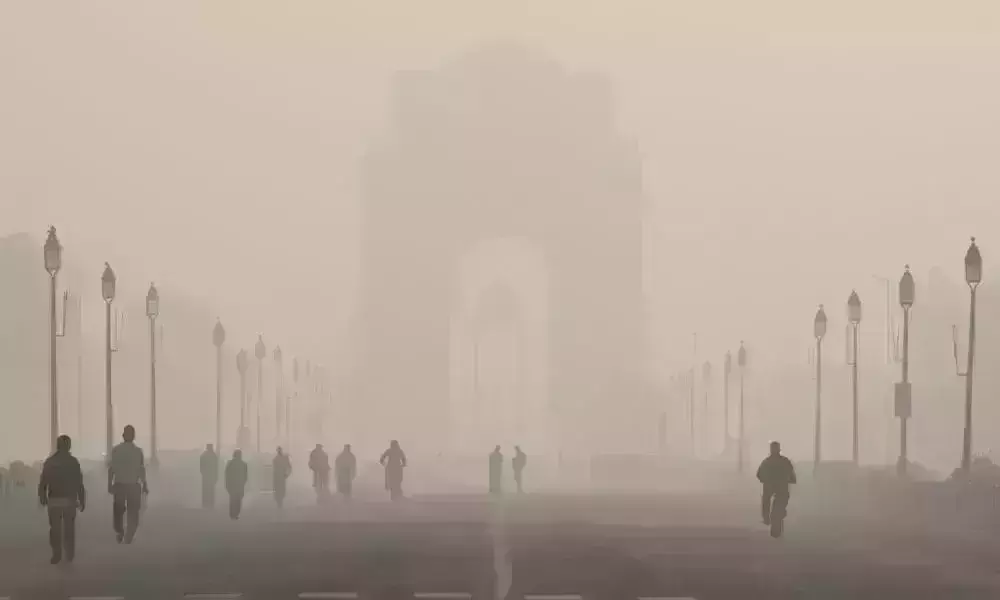

Smoking without cigarette; capital city turns to smoke chamber
text_fieldsDelhi's Air Quality Index (AQI) reported at 472 in the 'severe' category at ITO sector as the national capital witnessed heavy smog on Monday. The capital city reported the worst days in terms of air quality with 36 monitoring stations reporting it in 'severe' category. November 5, 2020 and the consecutive days remained the worst days since November 19, 2019 as the Air Quality Index hit the 500-mark in several localities.
The level of pollution in capital city was recorded at 486, including other pollutants apart from the PM 2.5 particles. IIT Delhi sector recorded the highest AQI with 563.
On Thursday, the presence of poisonous particles marked 14 times higher than the safe limit set by World Health Organisation. As per the Safar Data, Noida experienced the worst with AQI hitting 610, followed by Gurugram with A record at 462 on Friday which turned out to be one of the worst day, breaking all the records of this season. Conditions are worsening from past few days making residents difficult to breathe.
An AQI between zero and 50 is considered 'good', 51 and 100 'satisfactory', 101 and 200 'moderate', 201 and 300 'poor', 301 and 400 'very poor', and 401 and 500 'severe'.
According to SAFAR data farm fire pushed pollution upto 44% on November 1st the previous year . Usually an increase in pollution is expected every year followed by Diwali but this year records put it more precisely stating Diwali would make the pollution worst.
Central Pollution Control Board (CPCB), claimed that the air pollution in October this year was more than when compared to pollution previous year.
National medias quoted two prominent scientists to analyse the gravity of situation.
"Though the monsoon withdrawal happened on September 30 this year, Delhi did not receive rainfall since September 8. In 2019, the capital received moderate showers of 47.3 mm on October 4 and trace rainfall on October 1, while there was extended monsoon till October 10 last year", said Kuldeep Srivastava, a scientist at Indian Meteorological Department (IMD) and the head of the Regional Weather Forecasting Centre.
Anumita Roy Choudhury, executive director research and advocacy, Centre for Science and Environment (CSE) said that a rise in PM2.5 pollutants was observed as stubble burning started early this year. She said that last year, the AQI in October was high due to Diwali celebrations but this year, the figures were high due to stubble burning and winter conditions.
These scientific records and expert comments indicate that Delhi's worst days are coming with difficulty in breathing and reacting eyes being an every day sights of for the residents.
(Image Courtesy : ANI)























